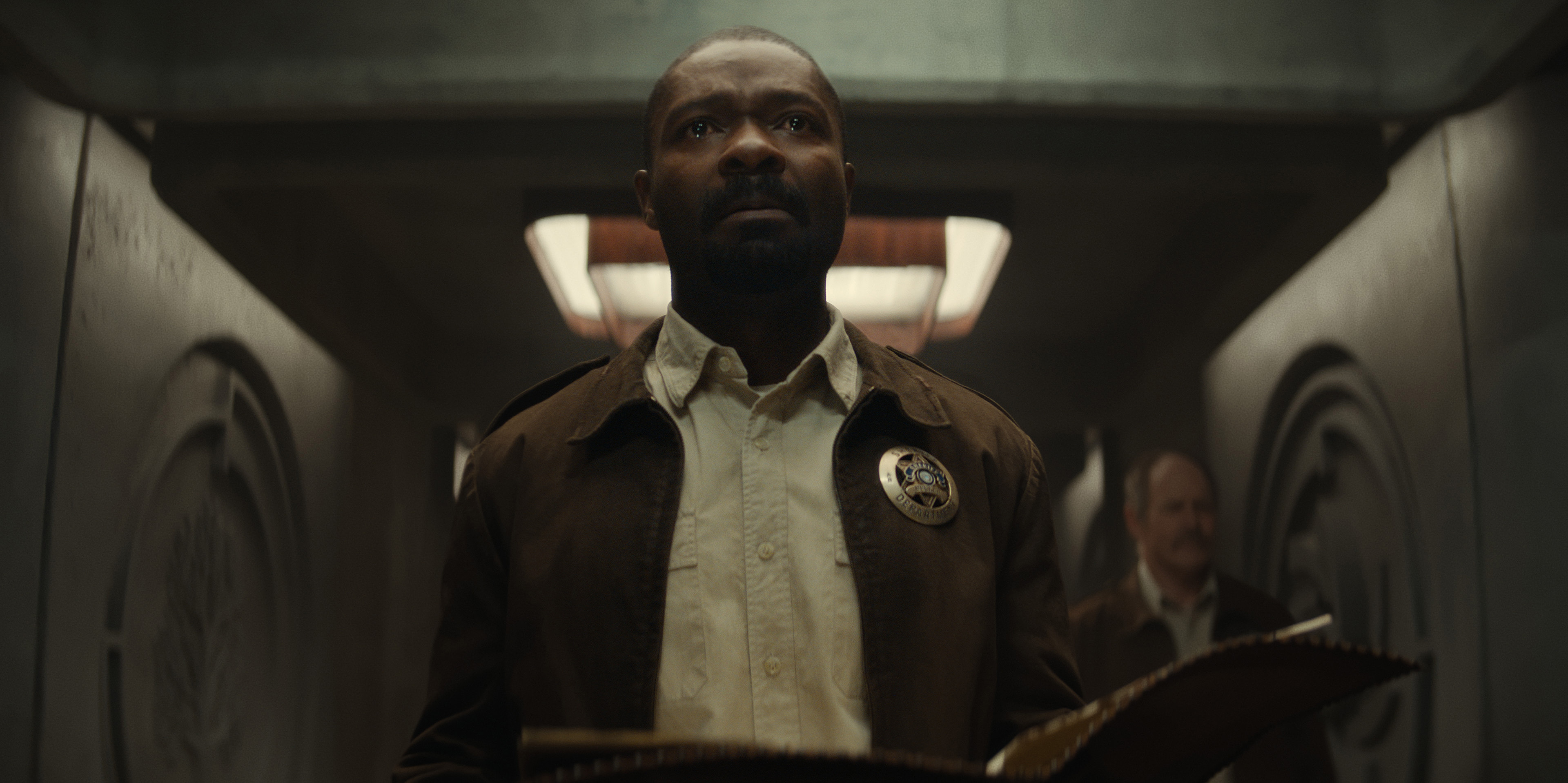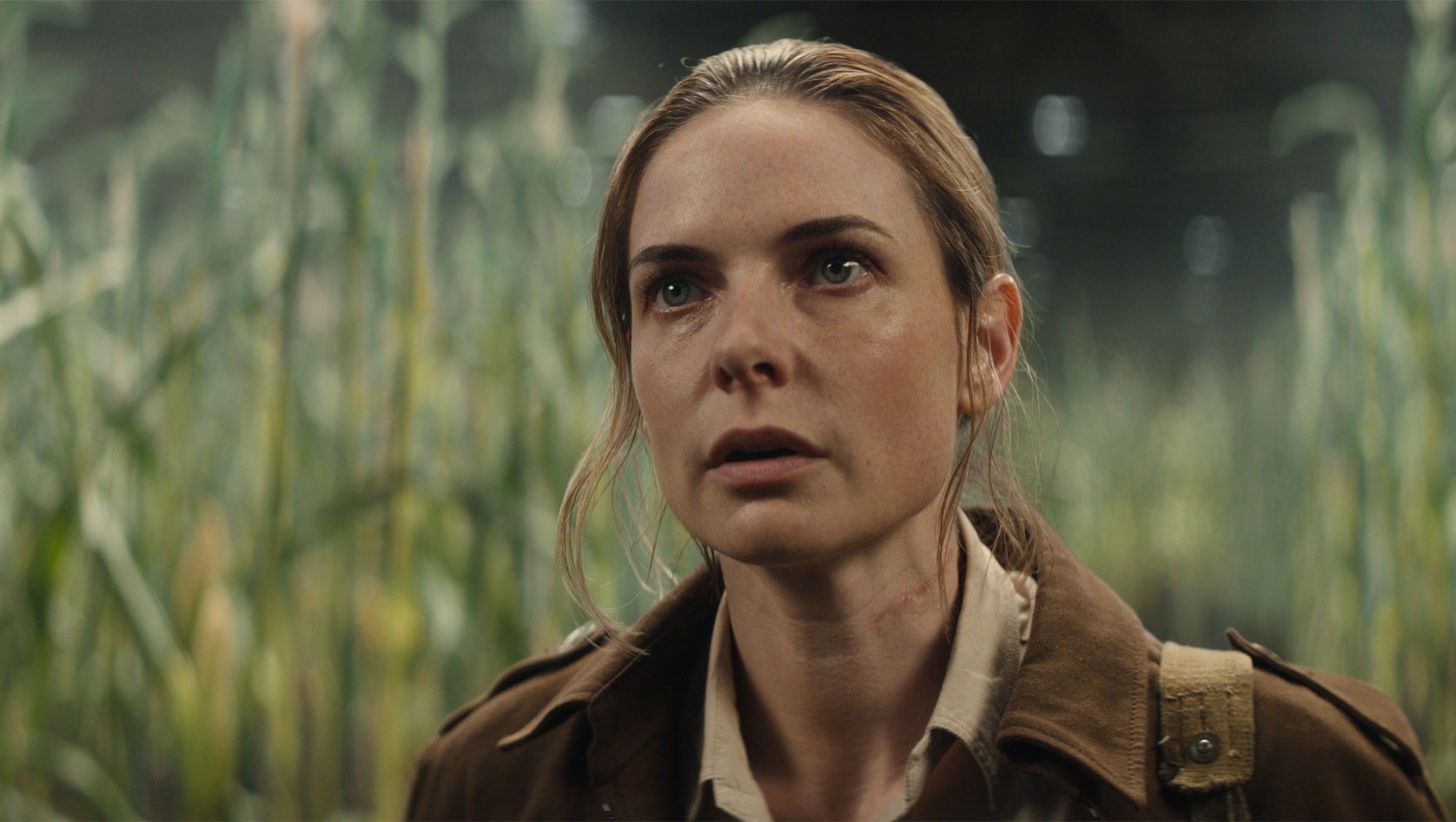Finished Fallout on Amazon? Then Silo is your next must-watch show
Silo is arguably the thinking person's Fallout

Sign up for breaking news, reviews, opinion, top tech deals, and more.
You are now subscribed
Your newsletter sign-up was successful
So Amazon Prime Video's Fallout series is rather good, managing to capture the tone and intrigue of the games but also make for compelling watching. But the series is only eight episodes long, which could leave some hungry for more post-apocalypse viewing. Enter Apple TV Plus’ Silo.
This sci-fi show flew a good bit under my radar, and I think it’s likely to be the same for others, with glossier shows like Ted Lasso, The Morning Show, Severance, and For All Mankind stealing the attention of would-be binge-watchers who've signed up to Apple's premium streaming service.
But over time, Apple TV has become the low-key home for great sci-fi series, with Silo being one of the best.
Way down we go

Based on a trilogy of books of the same name written by Hugh Howey, Silo has been adapted for TV by Graham Yost and revolves around a society living in a vast underground silo in a dystopian future where some apocalyptic disaster or war has rendered life outside seemingly impossible.
This premise makes Silo has the same initial vibes of Fallout's Vault-based life, but has a darker tone from the get-go, without falling into the realms of being po-faced. Fallout is darkly funny with a lot of prime colors, while Silo is a less-saturated and takes a more cerebral route to its story-telling.
The rules that govern the 10,000-strong Silo society are as claustrophobic as the silo itself, with knowledge of the world before and historical events purged from the almost literal pages of history. What could present an irritatingly vague setting, instead creates a foundation on which deft world-building can be layered. This happens almost literally, with the upper levels of the silo playing host to dignitaries, security, and the governors of the silo, while the mid- to lower levels contain blue-collar workers.
It may seem like a ham-fisted analogy to class division, but this actually paves the way for nuance with physical upward mobility letting people move beyond their roles, stations, and perceived class. And it’s here Juliette Nichols, played by Rebecca Ferguson, steps into the spotlight.
Sign up for breaking news, reviews, opinion, top tech deals, and more.
Digging deep

Initially an engineer who gets interviewed by the silo's sheriff about the death of her friend, Nichols is soon elevated into the position of sheriff herself. And it's through her eyes that we see the nuance of society in the silo, while also being fed all manner of mysteries; from wondering who holds real power in the silo, to what came before and what’s really going on outside.
Silo’s main premise may feel somewhat familiar to other post-apocalyptic tales and situations, but where it stands out for me is in the details. While Netflix’s Snowpiercer creates in a schlocky and overly obvious manner distinct societies based around positions on a perpetually moving train traversing a frozen Planet Earth, Silo’s world is subtle.
The folks in the position of power aren’t decadent individuals, but people who have the weight of the world pressing down on them, while folks in the mid-levels have just as interesting roles though with less authoritarian clout. Sure, those in engineering are tough and tattooed, leaning into post-apocalyptic stereotypes, but in the context of maintaining a massive generator needed to keep the silo alive, their brusqueness makes sense.
It's the details in this context that kept my eyes fixed on Silo; the broad catwalk heading to the imposing doors of the Judiciary (a group of law enforcers), the retro-futuristic design of the IT department, the Sheriff's office that looks like it was taken from a small midwestern town and bunged underground. There's a richness to Silo's sets and setting, despite the limitations of being in what's basically a concrete bunker. It reminds me of Fargo, where the camera doesn't mind lingering on shots just that little bit longer than normal, letting you drink in the details and tone of a scene.
The color grading also expertly adds to the atmosphere and detail of the silo. Mostly muted to convey life underground without sunlight, there are occasional bursts of color in people’s homes or on the shop lights of bustling market areas. All this emphasizes the world-building that Silo is steeped in, making it hard to look away even though there's a lack of real threats like the overarching menace of The Last of Us’ infected to keep the tension ramped up at all times.
The cast is strong too, with Fergerson portraying a tough engineer and equally tough sheriff but one with heart, an inquisitive nature, and dogged determination. It could have been easy for Nichols to just be a hard-as-nails character with a softer side deep down, but instead, Ferguson brings a lot of modulation to the character. She can go from a cool detective to a warm partner to an estranged daughter to an unrelenting force, all giving the sense that Nichols isn’t as predictable as one might first think while still being someone we can empathize with.
David Oyelowo, who plays Sheriff Holston also steals a few scenes. While Tim Robbins’ Bernard Holland deftly conveys a low-key sense of threat below the veneer of a seemingly anal and side-lined IT department head. Even Common, who plays outright threatening Judicial security head, Robert Sims, has more subtlety to him than just a big man in an ‘I’m the bad guy’ leather jacket.
Silo could have gone the soapy silliness route of Snowpiercer (again the TV show, not the excellent movie) or delved into the perpetual grimness of The Road. Instead, it presents thousands of humans getting by in a ruined world, with the trials and tribulations that affect them being almost parallel to ours; we have our conspiracy theories and so do the silo-ians
By not descending into chaos or campness, Silo presents a thought-provoking post-apocalypse society that enshrouds a murder mystery with a good ol’ dose of conspiracy. And I think it’s a perfect binge-watch for people who miss the Fallout show but also want a minor palate cleanser.
You might also like
Roland Moore-Colyer is Managing Editor at TechRadar with a focus on phones and tablets, but a general interest in all things tech, especially those with a good story behind them. He can also be found writing about games, computers, and cars when the occasion arrives, and supports with the day-to-day running of TechRadar. When not at his desk Roland can be found wandering around London, often with a look of curiosity on his face and a nose for food markets.